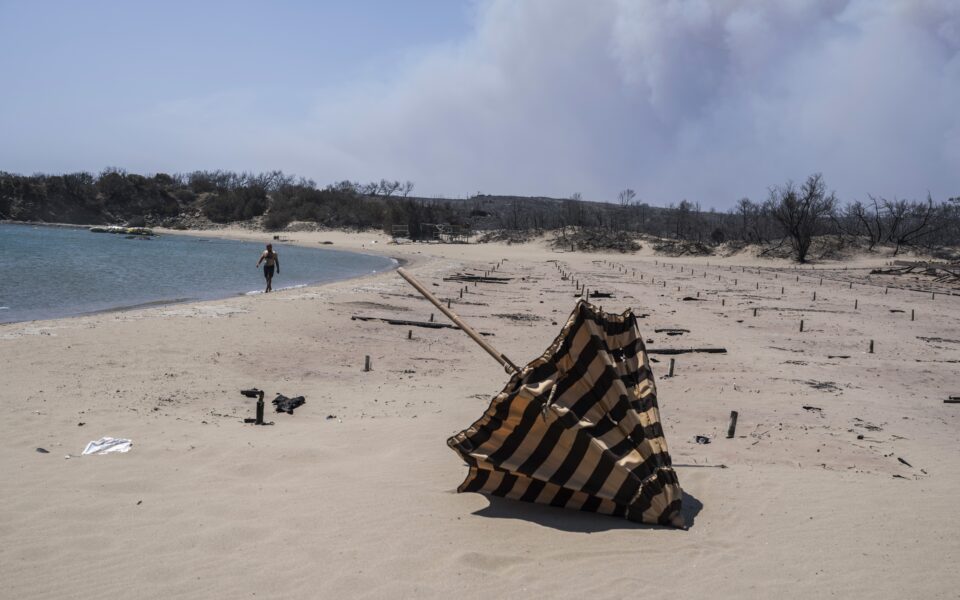Natural disasters hurt tourism

Natural disasters in Greece and the limitation of foreign visitors’ disposable income due to inflation and rising interest rates cost the country 500,000 foreign arrivals and a loss of 1.2 billion euros in tourism receipts this summer. This stems from a report on tourism by National Bank’s economic analysis department.
As the authors of the study point out, not all months of this summer saw arrivals exceed those of 2019. While June and July were 6.5% higher than in 2019, August closed at -4% compared to 2019.
Natural disasters, in particular heatwaves and fires, can be considered the key parameters for the weak August performance, which cost 300,000 foreign traveler arrivals, based on the conservative estimate that August could have approached the 2019 level.
The results for September paint a similar picture, with floods allowing only a marginal rise in arrivals (+0.6% compared to 2019), a performance significantly lower than that of June, the first month of summer, thus accounting for an additional 200,000 foreign traveler arrivals.
Therefore, although in 2023 it is certain that there will be a new record of travel receipts and arrivals, the effects of the climate crisis and the rising prices cost Greek tourism receipts of the order of 1.2 billion euros.
The effects of the climate crisis, as mentioned above, cost 500,000 arrivals, which correspond to revenues of €300 million. At the same time, “inflation constrained the budget of tourists, leading to a contraction in real spending per arrival (-5% compared to 2019) so the relatively limited real consumption of tourists cost an additional €900 million, under the conservative assumption that this year’s actual spending per tourist could be at 2019 levels.” In any case, the performance of Greek tourism so far creates expectations of achieving a historic high, according to National Bank.
Greek tourism broke the 2019 arrivals record this summer (16.9 million arrivals or +2% compared to 2019), while strengthening its share in the Mediterranean market (25% from 24% in 2019). A key driver was air arrivals (+14% vs 2019), with the US adding 24% on 2019.





